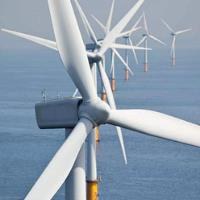(STRASBOURG) – The EU Parliament signalled its readiness Wednesday to negotiate with ministers on binding targets to boost energy efficiency by 35% and the share of renewables in the total energy mix by 35%, by 2030.
MEPs meeting in plenary endorsed proposals for binding EU-level targets of an 35% improvement in energy efficiency, a minimum 35% share of energy from renewable sources in gross final consumption of energy, and a 12% share of energy from renewable sources in transport, by 2030. To meet these overall targets, EU member states are asked to set their own national targets, to be monitored and achieved in line with a draft law on the governance of the Energy Union.
“The European Commission was too timid in its proposal,” said Parliament’s rapporteur Jose Blanco Lopez MEP: “If Europe wants to fulfil its Paris commitments, to fight climate change and to lead the energy transition, we need to do more. Parliament was able to achieve a broad consensus for significantly higher 2030 targets. We also managed to reinforce self-consumption as a right, to bring security and certainty to investors, to raise the ambition for decarbonising the transport sector, as well as the heating and cooling sectors. Decarbonisation is not a drag on economic growth. On the contrary, it is the driver of competitiveness, economic activity and employment.”
On energy efficiency, Parliament voted in favour of a minimum 35% binding EU target and indicative national ones. This target should be considered on the basis of the projected energy consumption in 2030 according to the PRIMES model (simulating the energy consumption and the energy supply system in the EU).
Voting on a separate piece of legislation on renewables, MEPs said that the share of renewable energy should be of 35% of the energy consumption in the EU in 2030. National targets should also be set, from which Member States would be allowed to deviate by a maximum of 10% under certain conditions.
In 2030, each Member State will have to ensure that 12% of the energy consumed in transport comes from renewable sources. The contribution of so-called “first generation” biofuels (made from food and feed crops) should be capped to 2017 levels, with a maximum of 7% in road and rail transport. MEPs also want a ban on the use of palm oil from 2021.
Regarding biofuels, the share of advanced biofuels (which have a lower impact on land use than those based on food crops), renewable transport fuels of non-biological origin, waste-based fossil fuels and renewable electricity will have to be at least 1.5% in 2021, rising to 10% in 2030.
The draft states also that by 2022, 90% of fuel stations along the roads of the Trans-European Networks should be equipped with high power recharging points for electric vehicles.
MEPs want support schemes for renewable energy from biomass to be designed to avoid encouraging the unsustainable use of biomass for energy production if there are better industrial or material uses, as carbon captured in wood would be released if it were burned for heating. For energy generation, priority should therefore be given to burning wood wastes and residues.
Parliament wants to ensure that consumers who produce electricity on their premises are entitled to consume it and install storage systems without having to pay any charges, fees or taxes.
The negotiating remit for MEPs also asks Member States to assess existing barriers to consuming energy produced on the consumer’s own premises, to promote such consumption, and to ensure that consumers, particularly households, can join renewable energy communities without being subject to unjustified conditions or procedures.
Further information, European Parliament
Procedure file – Promotion of the use of energy from renewable sources. Recast 2016/0382(COD)
Procedure file – Governance of the energy union 2016/0375(COD)



